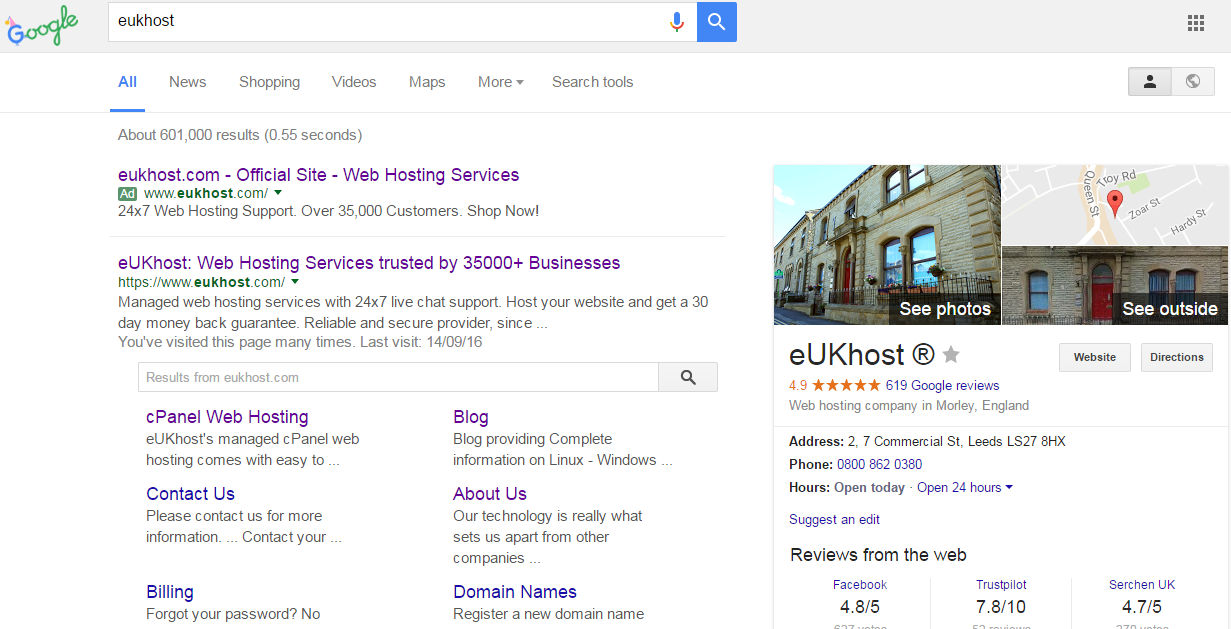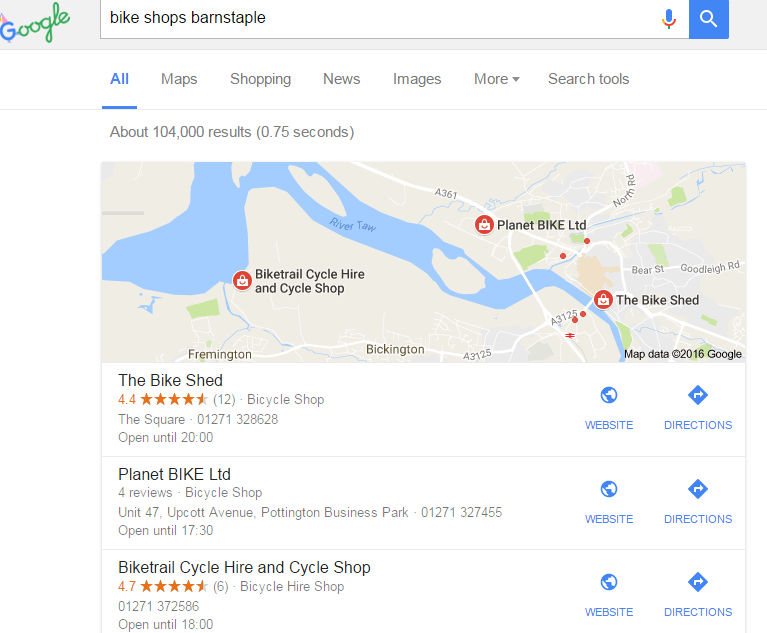SEO for local businesses has a special set of requirements that don’t apply to other websites. Failure to put these into practice can have dire consequences for your company’s online visibility. In this post, we’ll explain what local businesses need to do to get themselves noticed by search engines.
Understand that local SEO has different ranking factors
The first thing that local businesses need to take note of is that the ranking factors for local business are different to those of websites looking to operate over a wider geographical location. Whereas most websites are looking for high authority inbound links, site speed, high-quality content, etc., for local businesses the main ranking factors are these:
- Google Place listing and optimisation
- On-page local SEO optimisation
- NAP (Name, Address, Phone number) listings and citations
- Customer reviews and social media feedback
Do note, however, that being a local business doesn’t mean you can ignore all the other ranking factors that non-local websites need to work on. You’ll still need to do the work here too. So, now we know what the key local ranking factors are, how do we optimise for them?
Set up a Google Place and Google+ Local Pages for your business
The first thing you need to do is open a Google My Business account. This will allow you to create a free listing on Google Places that will appear in results when anyone does a relevant search. As you can see from the image below, this listing features prominently on search results especially on mobiles which are becoming increasingly useful tools for local businesses.

Even with less specific search criteria, such as bike shop Barnstaple you can see that those businesses listed on Google Places have been shown at the top of search results, both on a map and with a more detailed listing underneath.

By listing with Google Places, you are automatically giving your website the biggest backlink possible from Google itself. You can enhance the impact of this by also creating a Google+ business page and putting your business website details on there too,
Optimise your website for local ranking
There are a few rules you need to follow to fully optimise your website for local ranking, here they are:
Firstly, you need to include the location of your business, together with your brand or business name and any keywords in your pages titles, URLs, tags and meta descriptions. Where these are primarily to be read by people, try to make them as naturally sounding as possible. For example, whilst a page’s slug (end part of URL) can read building-design-reeds-hull the page title would need to be Building Design by Reeds, Hull.
You should also include your location as a keyword or part of a long-tail key phrase in your content. However, if you overdo this it can make difficult reading and lead to Google thinking you are keyword stuffing, so be judicious and place organically within the text.
In addition, you could also include your business address and phone number in the footer of your website as this will be picked up by search engines. For the biggest impact, make sure the phone number is clickable so that a visitor using a mobile phone can ring you directly from the page. Google likes to see this functionality on a website.
Finally, include a highly detailed contact us page on your website that includes business name, address, contact phone number, website address, email address and, if possible, a map from Google which shows your location. It can also help if you include opening times on this page too.
List your business on third-party listing sites
Besides listing on Google Places, it’s also a good idea to list your business on other high-quality listing sites such as Yell, Thompsons Local, or Trip Advisor. Not only will these provide authority links to your site and encourage users to visit your business, they will also create a NAP citation (i.e. they’ll list your business name, address, and phone number).
NAP citations are a key ranking factor used by search engines and if they appear on the better quality listing sites, like Yell, they can have a big impact on how Google views your site. Also, as the reviews on these sites are trusted by Google, it will often include your star rating on its Places pages.
Ensure that NAP listings and citations are identical
When you list your business on other sites, make sure that the NAP data you provide is identical. This consistency will prevent search engines from getting confused about your business. Whilst you might be able to work out that
eUKhost, 2, 7 Commercial St, Leeds LS27 8HX
and
eUKhost 2, 7 Commercial St, Morley, Leeds LS27 8HX
are one and the same, the seemingly insignificant difference of adding or removing a suburb to your address might trick an algorithm.
Decide which address you want to rank for and stick to that one when you list your address on third-party sites. Make sure, too, that this is the same as the address on your own site.
Encourage customers to leave positive reviews
The aim of Google and other search engines is to provide their visitors with the most valuable results. It goes without saying, therefore, that if someone searches for a restaurant in their local town centre, those with poor reviews aren’t going to rank well. Location aside, businesses with the most five-star reviews are always likely to rank higher simply because there is publically verified evidence to show they provide the best service.
To get amongst the highest rated businesses, therefore, you need to encourage your customers to leave positive reviews on Google and other quality websites. Not only will this improve your ranking it will also boost your reputation and thus generate more custom.
Whilst there are many ways you can encourage people to leave good reviews, you won’t get any if you don’t offer good service in the first place. You do need to be aware of the impact that consistently bad reviews can have. As we now live in an era of social media, there is no escaping the fact that people will comment on your business and that search engines will take note. It’s a democratising process that can make or break businesses.
What you must not do is pay people to write reviews for you or write your own. If you get found out these can ruin your credibility with your customers and can lead to you being removed from listings altogether.
Conclusion
As you can see from this article, local SEO requires a different strategy to optimising other websites. The key requirements for success are that you:
- sign up for Google My Business and list with Google Places
- optimise your site for location
- extend your NAP citations by listing with high-quality listing sites
- ensure those listings are consistent
- encourage your customers to give positive reviews
- offer the kind of customer service that generates good reviews
If you are a local business looking for high-quality web hosting with 24 /7 customer support and a host of security features, check out our range of business hosting packages.



